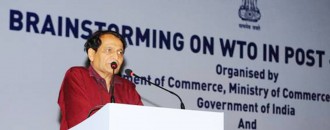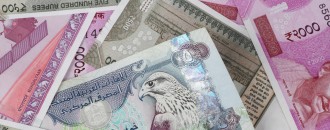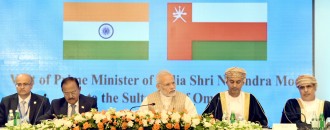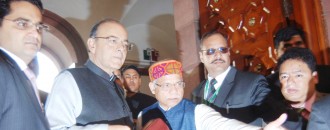
After Modi’s Germany visit, what do Spain and France hold for India?
The Dollar Business Bureau
After completing his engagements in Germany, Prime Minister Narendra Modi arrived in Madrid, the capital of Spain, on the second leg of his four-nation, 6-day tour focussed at enhancing bilateral economic cooperation with these four nations and to invite more investments into India.
“Landed in Spain, marking the start of a very important visit aimed at improving economic and cultural relations with Spain,” Modi tweeted just after landing in Spain.
Modi will be the first Indian Prime Minister to visit Spain in around 30 years. The last one was in 1988 by the then Prime Minister Rajiv Gandhi.
“Hola Espana! Prime Minister Modi arrives in Madrid, first visit by an Indian Prime Minister in nearly three decades, is received by Spanish FM in a special gesture,” tweeted Gopal Baglay, Spokesperson, Ministry of External Affairs (MEA).
On his visit, PM Modi had a discussion with Mariano Rajoy, his Spanish counterpart, on ways to strengthen the bilateral engagement. In a private conversation with Rajoy, Modi called for boosting bilateral cooperation to fight against terrorism as he termed “both the nations” have faced security challenges.
The Indian Prime Minister also called on the King of Spain, Felipe VI and met him at the royal palace.
During Modi’s visit, India and Spain signed 7 agreements that included cyber security and technical cooperation in civil aviation.
In addition, the two countries signed five MoUs on cooperation in organ transplantation, renewable energy, cyber security, civil aviation and one between Spain’s Diplomatic Academy and India's Foreign Service Institute.
“India is in favour of making its relations with Spain "even more productive", he said when addressing the media at La Moncloa, the official residence of Prime Minister of Spain.
He reiterated that his discussions with the Spanish Prime Minister would lead to enhanced ties between the two countries, while adding, “Spain and India should work in collaboration in all spheres.”
“He (PM Modi) would attend a round-table interaction with the leading business leaders in Spain, who are eager for investing in India. His visit will further strengthen the existing friendly and warm bilateral ties of India and Spain,” the MEA had said in a statement.
From Spain, Modi will depart to Russia on June 1 where he will attend the 18th India-Russia Annual Summit along with Russian President Vladimir Putin and the next day he will attend the St. Petersburg International Economic Forum.
After Russia, Modi will be in French capital Paris on June 2-3 where he will have official discussions with the newly elected President of France, Emmanuel Macron, to further bolster strategic ties between the two nations.
According to some media reports, Modi in his meeting with the French President would have discussions on various topics, including UNSC reforms and permanent membership for India in the UNSC, membership for India at various multilateral export control regimes, collaboration on climate change, International Solar Alliance and counter-terrorism cooperation.
In addition, India and France will also discuss cooperation on other areas such as space, defence, railways, urban development, and nuclear and renewable energy.
Earlier in the day, India and Germany conducted the 4th round of the bi-yearly Inter-Governmental Consultations (IGC) in Germany, with Modi held a meeting with German Chancellor Angela Merkel. The first IGC was conducted in 2011 in New Delhi, the second in 2013in Berlin, and the third in 2015 in New Delhi.
India and Germany also signed 12 Memorandum of Understandings (MoUs)/agreements.
During the first leg of his four-nation tour, Modi invited more German companies for investing in India even as the speedier finalisation of India-EU FTA was the focus from Germany’s side.
Modi and Merkel on Tuesday reiterated that there is an urgent need for a reform of the UNSC.
Both leaders said that there is a need to expand permanent as well as non-permanent memberships, in order to make the Council more efficient, effective and responsive to the prevailing challenges to world security and peace and representative of current geo-political realities.





